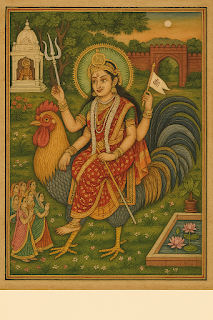Prisonrs f grmmar lolzzz ;)
It seems to be routine to me when publishers
rejects my articles for one or other reason.
But what made to think for this post is the comment of one reviewer that
I should improve my grammar and academic writing skills. This was an important comment
for me, not because it gave me scope for improvements but because it was
forcing me adhere the rules set by so called grammar laureates (especially when
the article was talking about non adherence of rules and norms in society !!!!).
Grammar of any lingual system is a
set of rules which is developed to synchronize system for producing and communication
meanings. Our obsession with grammar is so increased that we are getting away
from own thoughts and feelings while writing. Let me simplify this further.
There is thin line difference
between language and speech. While speaking we need not be conscious of about “rules
of language” (grammar) but while writing we are “taught” to confirm these “rules”.
This creates problem in expressing words on paper. Some of my friends are good
writers but bad speakers and on other side there are also people who are good speakers
and bad writers (like me J
). What makes them good or bad is simply
their capacity to submit to the rules of language they use to write or express.
Another problem with grammar I feel is
that it is very dry thing. “Rules of
language” gives us limited to scope to express our own feelings for instance we
never say “your request has been acknowledged and soon action will be taken…”
instead of this we say “Oh ya !!! I’ll do it, thanx for telling….”. This
difference and expertise to understand such difference makes “good” writers.
Interestingly, my generation is
better writer than my previous generation. How? Let’s take example of new communication
pattern being observed over internet and mobile i.e. texting or chatting. More intellectuals
are worried about “condition” of grammar and language itself when they talk
about texting or chatting. Because texting and chatting do not confirms to grammatical
regime. It violates all so called notion of grammar and allows people to speak
by text.
Unlike formal writing texting and chatting
are very near to our unconscious speech and meaning making ability. For instance,
usage of words like “hmmm”, “oooh”, “lolz”, “hehehe”, “ahaa”, “Naah”, “yaaaa” etc.
allows us to express what we exactly feel. This is completely absent in formal
writing. Texting and chatting also makes heavy use of emoticons i.e. expression
symbols like :) ;) :P :D :( and many more. These make meaning making process
very easy and simplify the communication. For example after long conversation
with someone when you receive “K” (OK) or
“Hmmm” it becomes easy to understand what the other person might have got in
his/her mind.
 It becomes more interesting to understand
this when it comes to Indian culture where regional words are mixed with English
words to produce exact meaning in regional language itself. For example, “HE” is
“हे” in texting, literally meaning “is” or “are”. There
has been many exercises going on to understand emergence hybridity of languages
(it is called Hinglish=Hindi + English). Such language structure, do not have
sets of rules for vowels, for articles, for verbs, for nouns, etc. this
structure of language is getting widely accepted due to its adoptability and
shows that how dangerous is the obsession of grammar to the humankind. I would not go into details of this but We
should not forgot express our thanks to technocrats who didn’t made
spellchecker for texting and chatting tools ;)
It becomes more interesting to understand
this when it comes to Indian culture where regional words are mixed with English
words to produce exact meaning in regional language itself. For example, “HE” is
“हे” in texting, literally meaning “is” or “are”. There
has been many exercises going on to understand emergence hybridity of languages
(it is called Hinglish=Hindi + English). Such language structure, do not have
sets of rules for vowels, for articles, for verbs, for nouns, etc. this
structure of language is getting widely accepted due to its adoptability and
shows that how dangerous is the obsession of grammar to the humankind. I would not go into details of this but We
should not forgot express our thanks to technocrats who didn’t made
spellchecker for texting and chatting tools ;)The language used without any rules are not haphazardly ordering of words but it is clear reflection of one’s own speech, own thoughts and expertise to understand “rules of language”. Everyone in this world is not expert to understand grammar (especially English grammar). They should not be complying to follow the rules of grammar. People should be allowed to express what they feel along with how they feel.







Comments